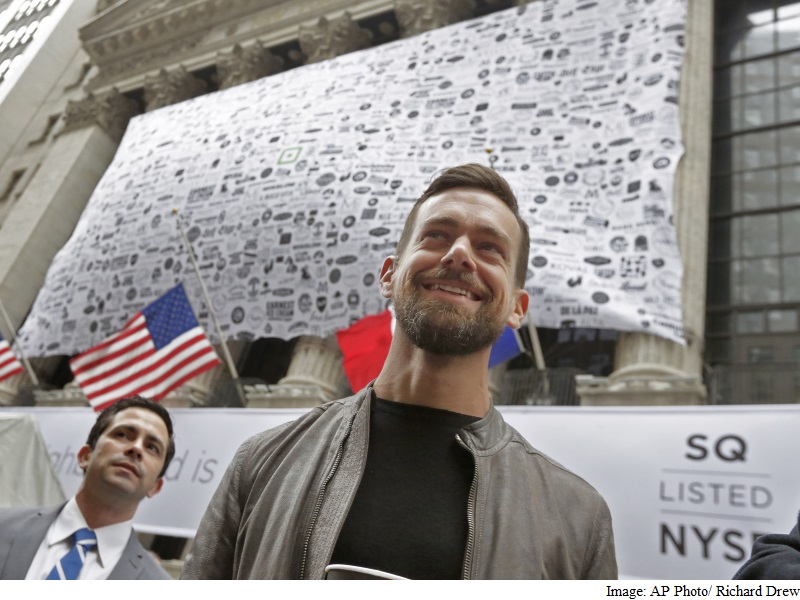- Home
- Internet
- Internet News
- Square's Gone Public. Now the Hard Part Begins
Square's Gone Public. Now the Hard Part Begins

With its market debut, chief executive Jack Dorsey had a lot to celebrate Thursday. His mother Marcia rang the bell for the market's open - even though the IPO happens to fall on his 39th birthday. But he also faces serious skepticism from analysts casting a wary eye at Square's core business, and its promises to revolutionize the way companies accept payments.
Perhaps as a nod to the unease about its IPO, Square said Wednesday that it would price its offering at $9 per share, significantly below its expected range of $11-$13 (roughly Rs. 727 - Rs. 860). That came as a surprise to many longtime company observers, some of whom had already commented that the original range seemed low.
Shares jumped as high as $14.78 (roughly Rs. 977) shortly after the opening bell, before settling a bit to just above $13 per share, giving the company a value of $4.77 billion (roughly Rs. 31,542 crores). Even with a strong first-day pop in early trading on the New York Stock Exchange that topped its original range, that's still lower than what shares of the company were reportedly going for on the private market.
Square launched in 2009 as a company that made a small card reader that plugs into smartphones and tablets. It aimed that product at very small businesses that had shied away from installing traditional card readers due to hardware and processing costs. More than 30 million businesses now use Square's products, which have expanded to a suite of hardware and software products designed to help merchants manage everything from their registers to their payroll.
Some of Square's problems stem from Dorsey himself, who founded Square after being ousted as chief executive of Twitter. The idea for the company was simple: give more merchants the ability to process credit card payments. After years of focusing on his payment company, Dorsey was recently welcomed back at Twitter and named as its chief executive, raising concerns about whether he has enough time to run both companies.
But Dorsey isn't the only concern. The payment market is growing increasingly crowded, with credit card firms, tech giants and start-ups all eyeing ways to move customers away from cash. With shrinking growth rates and concerns over how much it costs for Square to pick up new customers, the company will have to move quickly to stand up to the investor scrutiny that accompanies a public debut.
The payment company's quiet - almost slinking - IPO stands in sharp contrast to the string of high-profile, much-anticipated tech offerings from Facebook, LinkedIn and Dorsey's other company, Twitter, over the past few years. This IPO hits the market at a time when investors may be a jaded by companies that have high paper valuations and promise big growth and profitability down the line - but show little hard evidence of how to back up those claims on their balance sheets.
© 2015 The Washington Post
Get your daily dose of tech news, reviews, and insights, in under 80 characters on Gadgets 360 Turbo. Connect with fellow tech lovers on our Forum. Follow us on X, Facebook, WhatsApp, Threads and Google News for instant updates. Catch all the action on our YouTube channel.
Related Stories
- Samsung Galaxy Unpacked 2026
- iPhone 17 Pro Max
- ChatGPT
- iOS 26
- Laptop Under 50000
- Smartwatch Under 10000
- Apple Vision Pro
- Oneplus 12
- OnePlus Nord CE 3 Lite 5G
- iPhone 13
- Xiaomi 14 Pro
- Oppo Find N3
- Tecno Spark Go (2023)
- Realme V30
- Best Phones Under 25000
- Samsung Galaxy S24 Series
- Cryptocurrency
- iQoo 12
- Samsung Galaxy S24 Ultra
- Giottus
- Samsung Galaxy Z Flip 5
- Apple 'Scary Fast'
- Housefull 5
- GoPro Hero 12 Black Review
- Invincible Season 2
- JioGlass
- HD Ready TV
- Latest Mobile Phones
- Compare Phones
- Tecno Pova Curve 2 5G
- Lava Yuva Star 3
- Honor X6d
- OPPO K14x 5G
- Samsung Galaxy F70e 5G
- iQOO 15 Ultra
- OPPO A6v 5G
- OPPO A6i+ 5G
- Asus Vivobook 16 (M1605NAQ)
- Asus Vivobook 15 (2026)
- Brave Ark 2-in-1
- Black Shark Gaming Tablet
- boAt Chrome Iris
- HMD Watch P1
- Haier H5E Series
- Acerpure Nitro Z Series 100-inch QLED TV
- Asus ROG Ally
- Nintendo Switch Lite
- Haier 1.6 Ton 5 Star Inverter Split AC (HSU19G-MZAID5BN-INV)
- Haier 1.6 Ton 5 Star Inverter Split AC (HSU19G-MZAIM5BN-INV)







![[Partner Content] OPPO Reno15 Series: AI Portrait Camera, Popout and First Compact Reno](https://www.gadgets360.com/static/mobile/images/spacer.png)









